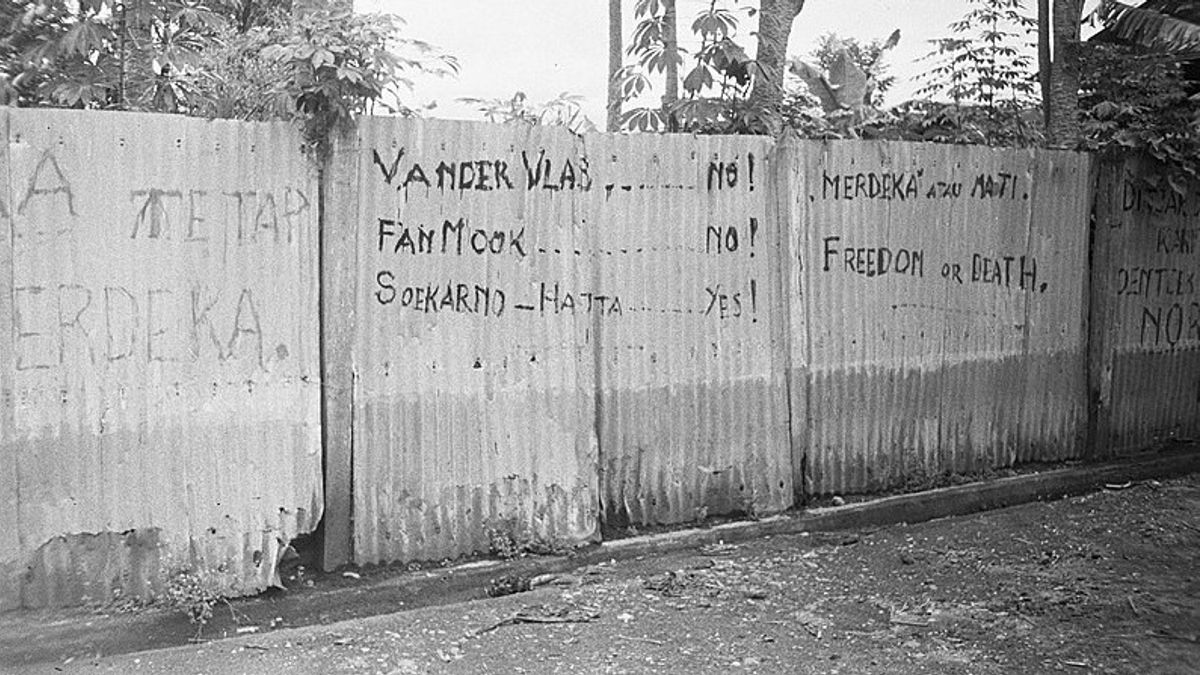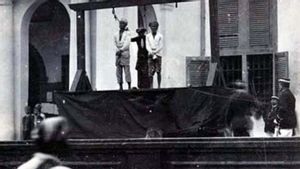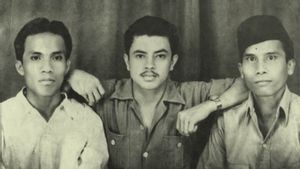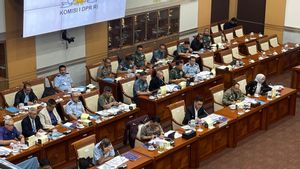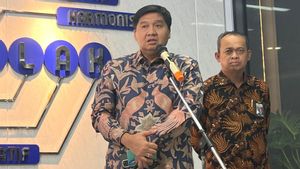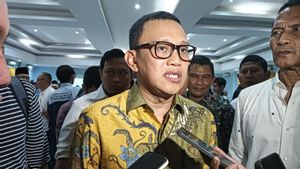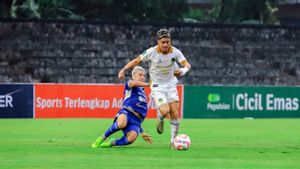JAKARTA - Efforts to introduce freedom fighters have high urgency. The study is used to commemorate and at the same time introduce the services of heroes for generations to come. Problems arise. The writing of the name of a historical figure is often inconsistent.
There is no uniform spelling standard to be adapted in the modern era. This condition is widely present in the mention of the name of heroes like Wolter Mongisidi who are often called Wolter Monginsidi. Cut Nyak Dhien who is also known as Cut Nyak Din. Why is that?
Different spellings and miswriting of the names of historical figures are often found everywhere. Various reasons accompany it. Sometimes it boils down to the number of spelling bills held. Sometimes also the business of the year out of the book. Sometimes also the author's idealism.
If studied further about spelling, history has revealed that the Bumiputras in the archipelago used the Malay language a lot. The language is popular in ports throughout the country. The language is a franchise that has developed in general and is known among Dutch and Asian leaders.
The existence of the Malay language is increasing because of the increasing number of religious books and literary works published. The colonial government of the Dutch East Indies took a stand. The spell that developed in literary works became a standardized spelling. Van Ophuijsen's spell (1901-1947), his name.
The title is used throughout the country. Malay language is growing. Moreover, Indonesian freedom fighters began to encourage national language. Malay language was later adopted into a series of Indonesian languages.
The incident was present in the Youth Pledge in 1928. The use of Indonesian language began to be adopted throughout the country when Indonesia had proclaimed Indonesia's independence. Van Ophuijsen's nickname was replaced with Ejaan Soewandi (1947-1972) or better known as the Republican Economy.
The Republican code lasts a long time. Everything changed when the New Order took over the government. Soewandi's performance began to be replaced with a Enhanced Performance (EYD). This narrative made many national figures change.
Sukarno became Sukarno, Suharto became Suharto, until Tjipto became Cipto. However, not a few people have criticized EYD. Some still think that Ejaan Soewandi is the main thing. The figure of historians like Ben Anderson often sees that EYD never existed. This assumption led him to faithfully write with Ejaan Soewandi who is rich in meaning.
'This is where he (Ben) finds the bad effects of EYD: how effective the spelling change is for the public memory and creativity of the younger generation. For him, the transition of Edjaan Suwandi to EYD has been a firm limit between what was written during the New Order era and the previous times. There is no continuation between the era before the EYD and the EYD era. The younger generation who are not creative and only repeats the New Order language, he said, has been hit by the elimination of history.'
At that point, Ben left EYD and wrote again in Ejaan Soewandi. As a person who learns Indonesian in the spelling, this step is clearly an easy matter, like return to origin. But, by turning on what the New Order said as the old spelling, Ben Anderson wanted to return to the times when Indonesians were more independent and creative in language. Indonesian language at that time was also more diverse, not uniform like New Order language," explained Joss Wibisono in his article in Tempo Magazine entitled Ben Anderson and Good Cases (2016).
The spelling system has a major influence on the inconsistency of writing the name of a historical figure. Historians are considered to contribute the most to this matter. Many write the names of figures based on their comfort in using certain spelling systems.
There is something comfortable with Ejaan Soewandi. There are also those who are comfortable with EYD. Historian Christopher Reinhart agrees with this. he revealed that the standards of historians are usually inseparable from two perspectives.
First, historians follow the spelling of the birth name, for example Suharto (not Suharto). Second, historians who adjust the spelling of birth names to the naming of the current era, for example (Hussein, not Hoessein).
Reinhart also mentioned that there are also historians who are very thorough in using both of them. One is written on the writing body. The rest will be given a foot note to confirm the spelling used.
This step is taken so that there is no confusion and the public can digest it. However, if the problem is not a joke, but a name error, the case is different again. Errors in writing names often lead to the presence of chapter history books or playstream, such as school books.
If the writing on the book is wrong, then all the derivative books that quote it will be wrong. This condition is what we see from the naming of a historical figure in Sulawesi, Wolter Mongisidi, who was written wrongly as Wolter Monginsidi.
SEE ALSO:
"Well, if it's a name error (not a spelling mistake), it's usually the source of the mistake is the history books of baikon or playstream such as school books or standard books such as SNI or IDAS - if it's wrong here, all the derivative books quoting it must be wrong because these books are likely to be the basic reference for many writings.
"Once again, if the business is on spelling, then there must be historians who have different views. But if the case is wrong, such as Wolter Mongisidi, the government should be able to help with the correct publication. The key is also if cases like this are not only in writers/students but in editors, "explained Reinhart to VOI, March 28, 2024.
The English, Chinese, Japanese, Arabic, and French versions are automatically generated by the AI. So there may still be inaccuracies in translating, please always see Indonesian as our main language. (system supported by DigitalSiber.id)
